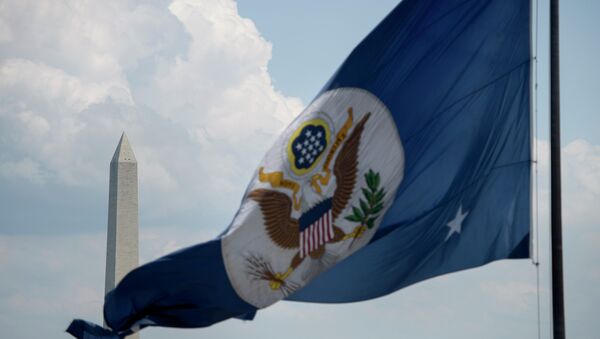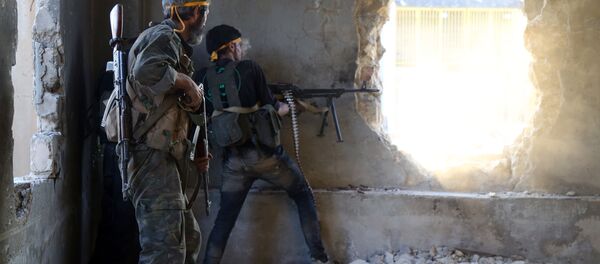Speaking at a press briefing on Tuesday, Rhodes said that the meeting between President Vladimir Putin and President Barack Obama in China Monday on the sidelines of the G20 Summit had clarified the main differences of approach between the leaders on resolving the Syrian crisis, and improved prospects for cooperation between the two powers.
Moreover, the presidential advisor indicated that the US would be willing to cooperate with Russia against the Daesh (ISIL/ISIS) and Fateh al-Sham (formerly Nusra) terrorist groups. "We are open to working with Russia on the threat posed by [Nusra and Daesh]. In order to achieve such cooperation, we need to make sure that there is calm, and humanitarian access," Rhodes said, as cited by Russia's RIA Novosti.
For his part, President Putin said that his meeting with the American president had definitely helped the two leaders to "delve into the details and to understand one another's positions."
"Some technical details need to be worked out. If [Russian Foreign Minister Sergei] Larvov and [US Secretary of State John] Kerry are able to do this, we will be able to advance on the question of a settlement [in Syria]," Putin added.
Back in Washington, State Department spokesman Mark Toner indicated that progress was being made in negotiations. As if to clarify what Mr. Rhodes meant about the US 'working with Russia' against the terrorists, Toner said that it could mean joint airstrikes.
Speaking at a press briefing on Tuesday, the spokesman said that pending "a cessation of hostilities nationwide, talks beginning again in Geneva…humanitarian assistance, access to all besieged areas, administered by the UN – if we get these steps along the way, we have talked about the possibility of working in some fashion with Russia to carry out strikes specifically targeting Nusra and Daesh."
But no sooner had the officials made their comments before Rhodes himself retreated back to the US's old 'Assad must go' stance. Speaking at a briefing in Laos, the official warned that Russia's support for Syrian President Bashar Assad would lead to the isolation of both Moscow and Damascus.
Dusting off the White House's old position regarding the necessity of a 'political transition', the official said that the US can only see the violence in Syria coming to an end "if there is a moderate opposition that is able to come to the table."
Perhaps unsurprisingly, Rhodes' backpedaling on the possibility of cooperation with Russia against terrorism was basically matched by Toner at his own press conference, with the official indicating that "we're not going to settle for a less than ideal deal."
Toner's comment prompted a response by veteran journalist Matthew Lee, who pointed out that the very process of negotiation by definition requires compromise. "People always settle for less than the ideal; it's the risk of sacrificing the good for the perfect, where the perfect is impossible," Lee said.
Ultimately, US officials' confusing remarks on simultaneously working with and isolating Russia in Syria give off the impression that, with less than five months left to go in the Obama presidency, Washington still hasn't been able to work out a coherent policy on the crisis in Syria.




